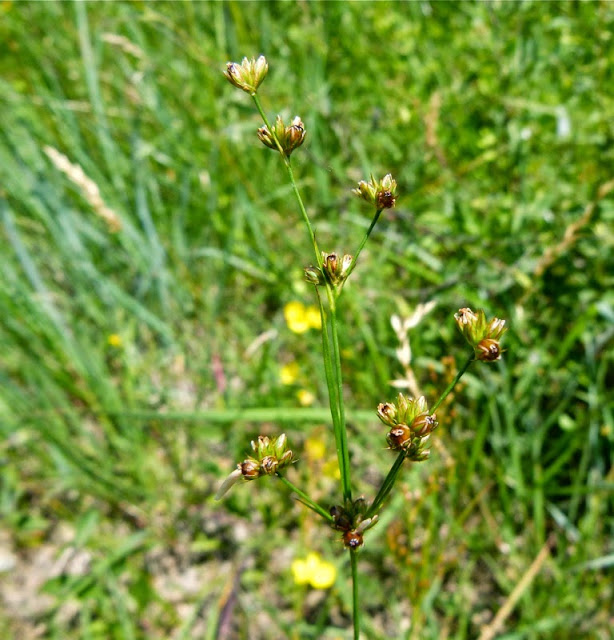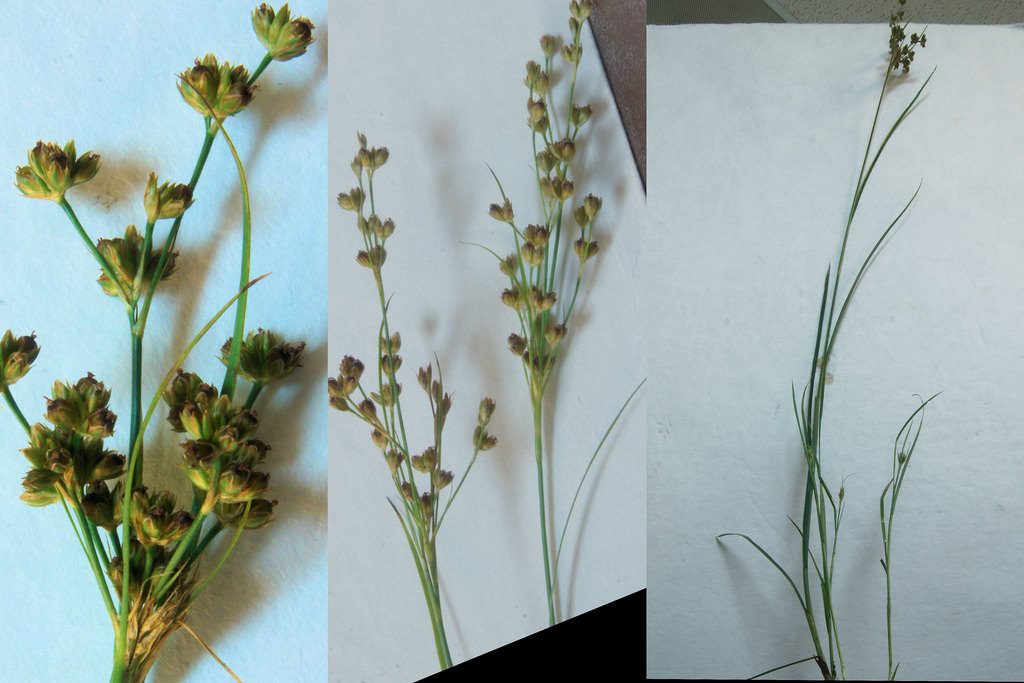Map Snapshot
















41 Records
Seasonality Snapshot
Source: Wikipedia
| Juncus marginatus | |
|---|---|

| |
| Scientific classification | |
| Kingdom: | Plantae |
| Clade: | Tracheophytes |
| Clade: | Angiosperms |
| Clade: | Monocots |
| Clade: | Commelinids |
| Order: | Poales |
| Family: | Juncaceae |
| Genus: | Juncus |
| Species: | J. marginatus
|
| Binomial name | |
| Juncus marginatus Rostk.
| |
| Synonyms[1] | |
|
List
| |
Juncus marginatus is a species of flowering plant, it is a type of rush with the common names of margined rush and grass-leaf rush.[2]
Description
[edit]Juncus marginatus is a grass-like, herbaceous, short-lived perennial growing from short rhizomes.[3] Plants produce dense tufts or clumps growing 30-130 cm tall.[4] The plants are sometimes rhizomatous. The leaf blades are flat. The flowers are grouped together into a terminal inflorescence called a glomerulus.[5] Each flower has three stamens and three sharply acute sepals that are reddish-brown in color. The plump and ribbed seeds are produced in a rounded and beakless capsule. The small yellow to light brown seeds are spindle-shaped, and around 0.5mm in length and lack a tail but have sharp points on either end (apiculate).[3][4] The diploid chromosome count is 38.[4]
Distribution and habitat
[edit]Juncus marginatus grows in North America in the Eastern and Southeastern US, ranging to Texas and South Dakota.[5] It is also found Ontario Canada, California, Colorado, New Mexico, Oregon, New Mexico, the West Indies (Cuba), and Central America; where is found growing in moist to wet bogs, on shorelines, in marshes and ditches - with sandy, peaty, or clayey soils.[4] One historic population existed in Minnesota until 1999 when other small populations were found in Anoka County; because of its rarity it was listed as an endangered specie in the state.[3] In Minnesota the species is found growing in shallow wetlands/prairies of the Anoka Sand Plain where the normally dry sandy ground dips below the water table.[3]
References
[edit]- ^ "Juncus marginatus Rostk". www.worldfloraonline.org. Retrieved 2021-01-18.
- ^ Chester, Edward W. (2009). A Fifth Checklist of Tennessee Vascular Plants. BRIT Press. ISBN 978-1-889878-26-3.
- ^ a b c d "Juncus marginatus : Marginated Rush | Rare Species Guide". Minnesota Department of Natural Resources. Retrieved 2021-01-18.
- ^ a b c d "Juncus marginatus in Flora of North America @ efloras.org". www.efloras.org. Retrieved 2021-01-18.
- ^ a b Barbara Coffin; Lee Pfannmuller (1988). Minnesota's Endangered Flora and Fauna. U of Minnesota Press. p. 104. ISBN 978-0-8166-1689-3.


